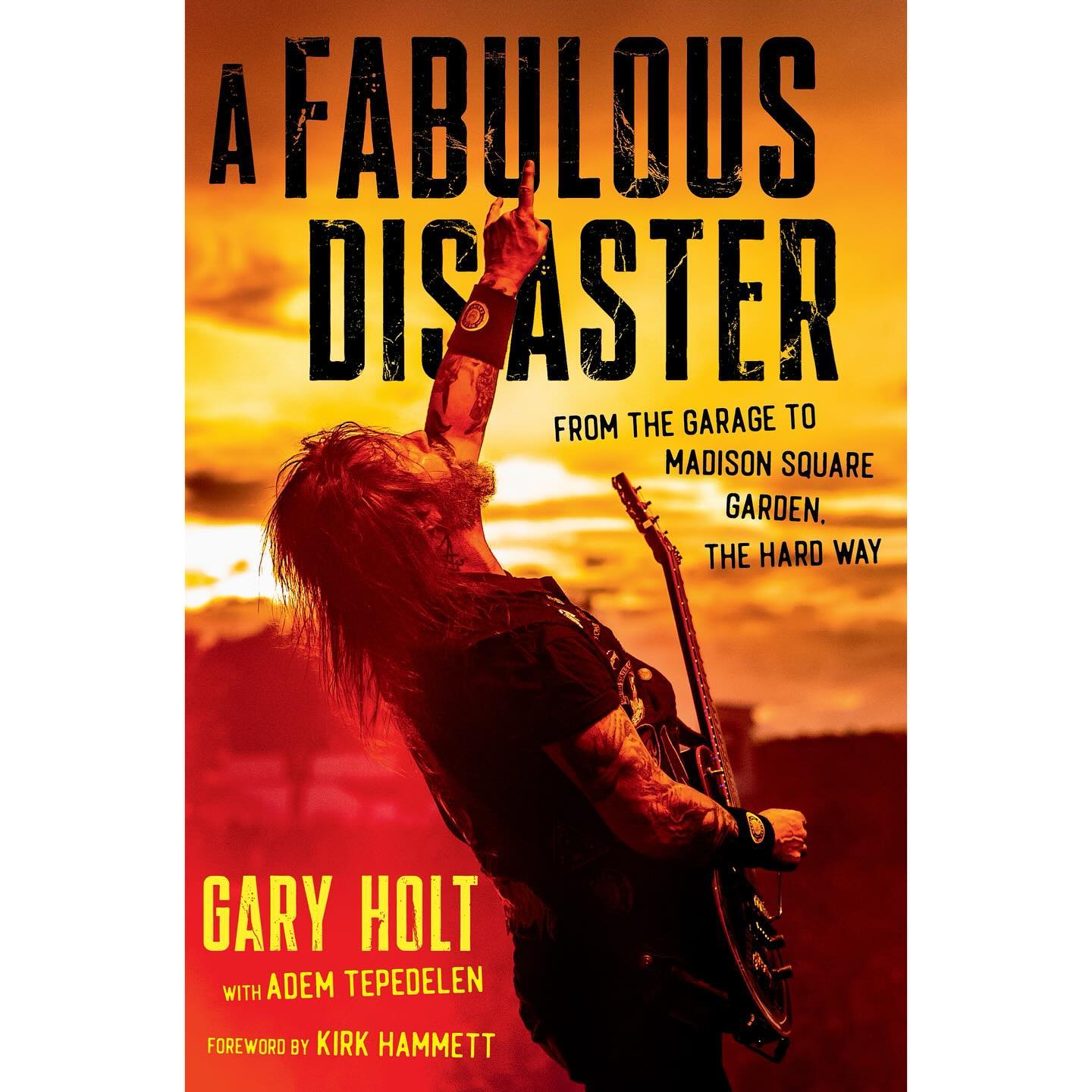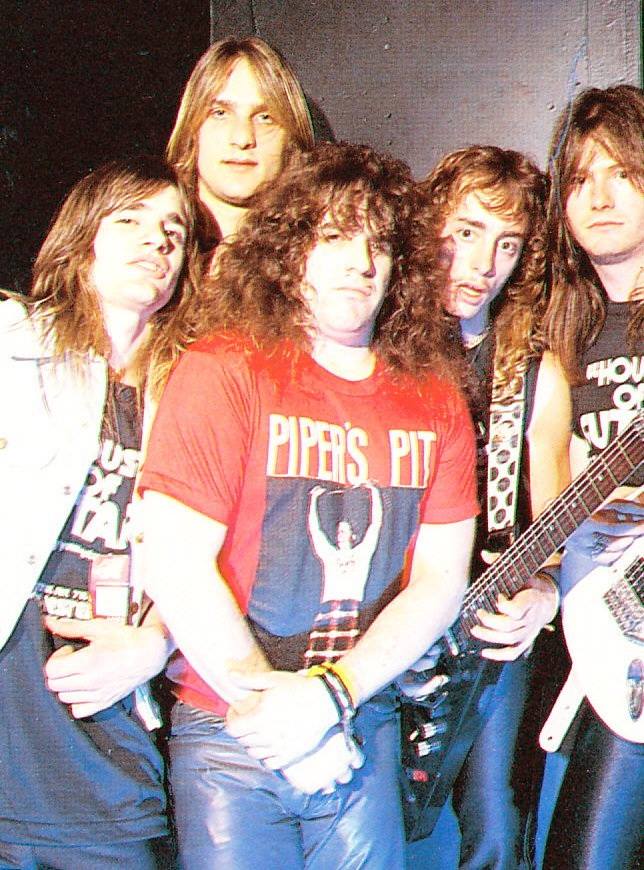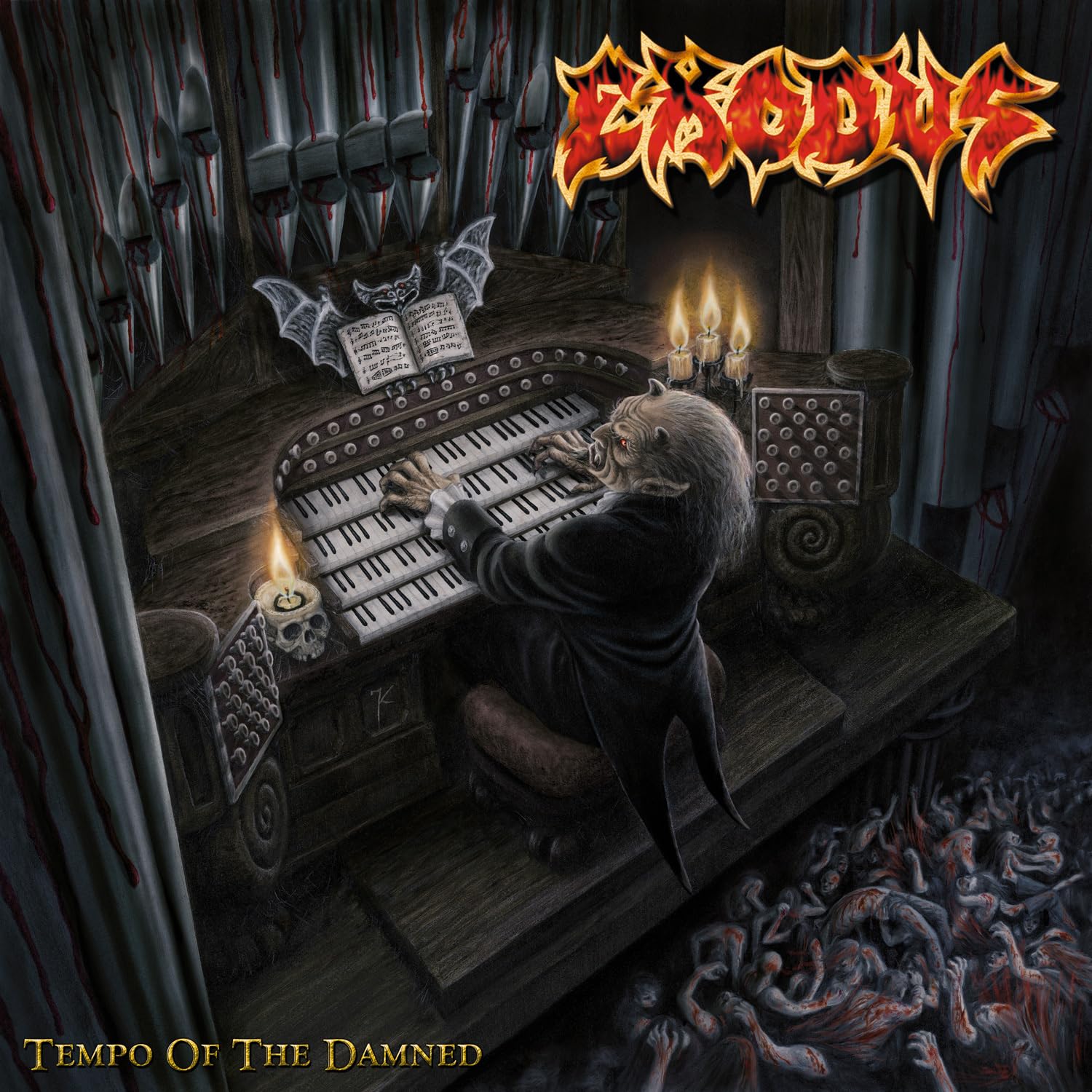
It’s been a while since I last posted here. I’ve had some health issues that I had to deal with. There’s still a little bit of treatment left, but I am getting back to the things I love. One of those things is writing about metal and everything related to it! So, what better way to get back into writing than to review the new book from the legendary Gary Holt, titled A Fabulous Disaster:
My first impression of Exodus came with Tempo of the Damned in 2004. I was already deep into thrash and well aware of Exodus by name, but I hadn’t given them a proper listen yet. At a random record store visit (remember those?) I saw the CD and I absolutely loved the cover. I figured this was the perfect moment to dive in. I came home, put the CD in my stereo and then the journey began. And what a journey! I remember listening to the opening track, Scar Spangled Banner, and the riffs just kept on coming! I was listening to it with my cousin who is a like-minded heavy metal fan. When the song finished, he laughed and said, “There were so many riffs in that one, do they even have any left for the rest of the album?”
Tempo of the Damned has been my favorite Exodus record ever since. Most people will probably cite the earlier records or one of the Exhibit albums, but to me, Tempo is the ultimate Exodus record.
Fast forward to today, I am a full-on fan of this band! Gary Holt, the mastermind of the band, is one of the most prolific metal writers of not just the ‘80s but he’s also one of the most prolific metal songwriters of the modern era. While the band has had its line-up changes over the years, especially in the vocal department, Gary’s consistent presence kept the music engaging. While some albums sometimes felt a bit rushed, when the band takes its time and streamlines the songs, the results are good. Tempo, Exhibit A, Exhibit B, Bonded by Blood, Fabulous Disaster are all great records. I do sometimes wish the songwriting was more streamlined in certain songs, but hey, I won’t argue with Gary! The guy delivers.
So of course, when Gary announced his book A Fabulous Disaster, I had to grab a copy. I went with the digital e-book this time. Usually, I prefer audiobooks when it comes to musician autobiographies—there’s something great about hearing the stories in their own voice—but for this one, I felt like sitting down and reading.
This post is part book review, part tribute to Exodus. Just my thoughts, as a longtime fan, on Gary’s journey and the band that’s meant a lot to me over the years. So here it is.
Just like any other book from a metal musician, this book is primarily for people who either already love Exodus or are at least interested in the band or the genre. Sure, someone unfamiliar with metal might still enjoy it, but you’d definitely get more out of it if you already know some of the key players in the scene. Gary co-wrote the book with Adem Tepedelen, a seasoned music journalist. From the acknowledgments section, it sounds like Tepedelen played a guiding role—prompting Gary to recall specific stories and moments from Exodus’s long history. That’s a pretty common setup in musician autobiographies: a co-writer helps shape the narrative and fill in gaps. Sometimes they’re ghostwriters, completely behind the scenes. But here, I appreciate that Gary gives Tepedelen direct credit—it’s a sign of respect and transparency.
There’s a lot in this book that surprised me. In that sense, I liked it a lot. I love the ‘80s thrash scene, so if there’s something new to learn, I’ll take it.
The first thing that caught my attention is how important Kirk Hammett’s presence was to Gary’s overall career. I knew they played together in Exodus in the early days, but I didn’t know Kirk was the person who showed Gary his first chords on the guitar! How cool is that? And as much as Kirk’s entry to Metallica changed his life, it completely changed Gary’s too.
Another major takeaway from the book is how deeply Gary still loves and remembers Paul Baloff. I really enjoyed reading about how they met and the wild adventures they had together. Post-2000s Gary has always seemed calm, focused, even kind of reserved—so it was surprising (and entertaining) to read about the chaos of those early days. I have to be honest, I wasn’t always the biggest fan of Bonded by Blood because I could never get into the vocals. Much respect to Baloff, but his lead vocals just weren’t my cup of tea. But I understand why Gary gives him a lot of credit. And it was really hard to read the chapter about Paul’s passing and the impossible position Gary found himself in. All in all, it’s loud and clear that Baloff wasn’t just a frontman, he was a vital part of Exodus’s identity in those formative years.

Speaking of Bonded by Blood, one part of the book that stood out to me was Gary’s reflection on Let There Be Blood—the re-recorded version of Bonded, featuring Rob Dukes on vocals and Lee Altus on lead guitar. Gary admits he regrets doing it, citing overwhelmingly negative fan reactions. Before writing this article, I did a little digging and read through forums and reviews. And yeah—people really hate it. A lot of fans didn’t understand why it even happened. But if you read the book, you’ll get the context. Gary explains their mindset at the time, and whether or not you agree with the decision, it makes more sense once you hear it from him. As for me, I love Let There Be Blood. Normally, I’m not a fan of re-recordings—albums capture a specific moment in time, and trying to replicate that can dilute the original’s impact, even if the original still exists. But this one’s an exception. Rob Dukes does a stellar job and – I’m really not trying to be controversial here, it’s just my opinion – I much prefer his vocals. This album made me appreciate the original. Without it, I don’t know if I would have gone back to Bonded by Blood.
In other parts of the book, you’ll learn about Gary’s upbringing, the challenges Exodus faced over the years, and how touring can be brutal. I had no idea of some of the massive challenges he faced in the ‘90s when Exodus wasn’t really active. It’s a miracle the band managed to come back at all. I’m glad they did because some of my more favorite albums from them are from Tempo of the Damned and beyond.

One thing I really appreciated about Gary’s storytelling is his willingness to self-reflect. Metal musicians aren’t exactly known for humility, so it was a refreshing surprise. In fact, there were times I thought he was being a bit too hard on himself. But I get it—he’s the one who has to live with the decisions he shares in this book. It can get to you. There’s a lot there. Band member changes, business choices, personal life struggles, friendships, relationships, fatherhood… It’s a lot of memories to deal with. A lot of choices and their consequences to wrestle with. I’m sure there’s plenty he didn’t even put in the book.
One ironic twist in the book is how highly Gary speaks of the current lineup—well, the lineup at the time of writing. As most fans know, Zetro was let go earlier this year. In the book, Gary talks about how solid the band felt, how everyone was in a good place, and how this was the most stable version of Exodus in years. Clearly, things didn’t play out that way. I imagine Gary himself isn’t thrilled he couldn’t update the book with that new chapter, but that’s the nature of autobiographies—real life keeps moving after the last page. As for me? I’m stoked that Rob Dukes is back. I’ve always liked Zetro, but Dukes just fits better with the heavier, more modern direction of Exodus. I’m genuinely excited to see where the band goes from here.
There’s a lot more I could say about the book, but I’ll leave the rest for you to discover. I didn’t even get into Gary’s time with Slayer—but trust me, the behind-the-scenes stories are worth it. I know I appreciated them.
My overall impression of the book is positive. I love reading about this music that I love, especially from the people who were there in the early days and helped shape the genre. Gary Holt is one of the biggest contributors of thrash metal. It’s impressive and inspiring to know he’s still here and still coming up with those crushing riffs! Here’s to plenty more!


